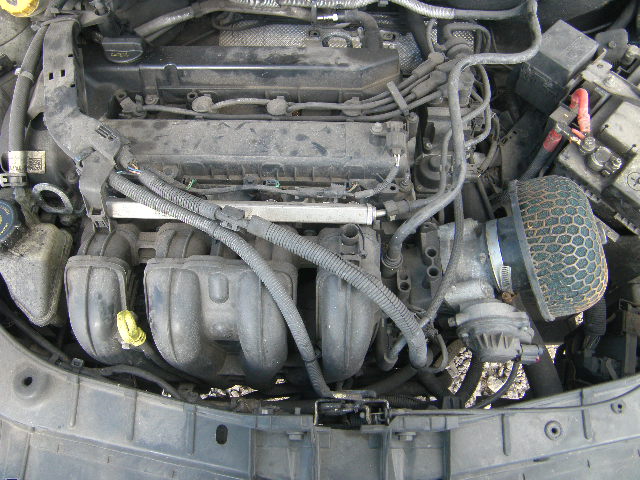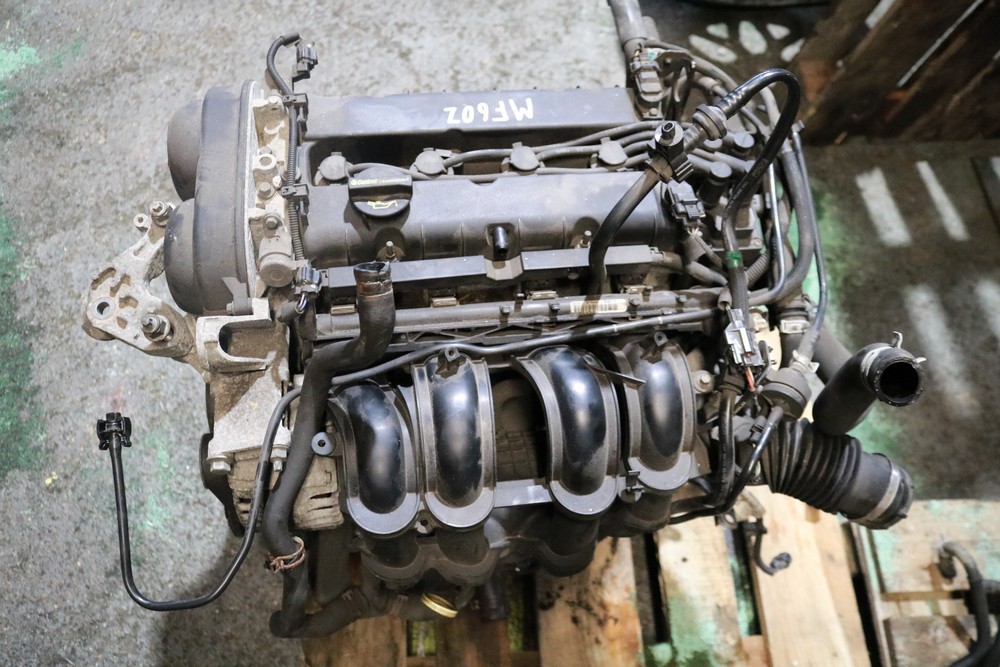Exploring the Benefits of a High-Performance Ford Fiesta Engine
Exploring the Benefits of a High-Performance Ford Fiesta Engine
Blog Article
The Future of Engines: Developments Driving Sustainable Power Solutions
As the vehicle market browses the important transition towards sustainability, the future of engines is progressively specified by groundbreaking technologies. Electric engine innovations, alongside appealing developments in hydrogen fuel cells and biofuels, are improving the landscape of power solutions. The introduction of crossbreed systems further complicates this evolution, offering both challenges and possibilities to minimize discharges effectively. Combined with the assimilation of man-made knowledge in engine style, these technological strides elevate essential questions regarding their long-term viability and influence on typical paradigms. What might this suggest for the sector and customers alike?
Electric Engine Advancement
The advancement of electric engine advancements indicates a pivotal shift in the aerospace and auto markets, driven by the immediate need for lasting choices to fossil gas. This shift is characterized by substantial advancements in battery modern technology, power electronics, and electric motor style, which jointly improve the efficiency and performance of electric engines.
Recent innovations have resulted in the development of lighter, extra energy-dense batteries, such as lithium-silicon and solid-state batteries, which promise longer varieties and much shorter charging times. Furthermore, improvements in electric motor effectiveness, such as using irreversible magnets and advanced cooling systems, allow electric engines to run properly under differing problems. These improvements not just improve car performance but also contribute to a decrease in general energy intake.
Moreover, the combination of advanced software algorithms has actually enhanced energy monitoring in electrical cars, enabling regenerative stopping and predictive billing strategies. As producers progressively welcome electric propulsion, the aerospace and automotive fields are observing a paradigm shift in the direction of greener modern technologies. This evolution not just meets regulatory demands but likewise lines up with consumer preferences for environmentally friendly transportation solutions, solidifying electrical engines as a cornerstone of future lasting flexibility.
Improvements in Biofuels
As the aerospace and auto markets significantly focus on sustainable energy resources, advancements in biofuels become a complementary solution to electric engines. Biofuels, originated from natural materials such as crops, waste, and algae, present an ingenious avenue for minimizing greenhouse gas exhausts and reliance on nonrenewable fuel sources.
Recent research study has actually concentrated on enhancing the performance and sustainability of biofuel production. Second-generation biofuels utilize non-food feedstocks, minimizing competitors with food supply and reducing ecological influence. Developments in synthetic biology have allowed the engineering of microbes to generate biofuels much more effectively, leading to greater yields and lower manufacturing expenses.
Additionally, the advancement of drop-in biofuels allows for seamless integration right into existing facilities, allowing a smoother shift for industries typically based on nonrenewable fuel sources. ford fiesta engine. These fuels can be made use of in present engines without adjustments, promoting their adoption across numerous industries
Investments in biofuel innovation, in addition to supportive plans, are important to drive innovation and scalability. As the worldwide neighborhood looks for to fight environment change, biofuels provide a practical, immediate remedy that lines up with the overarching goal of sustainability in transportation and air travel.
Hydrogen Fuel Cell Modern Technology
A growing variety of companies and scientists are checking out hydrogen gas cell innovation as a sensible option to conventional source of power in transport and energy systems. This technology converts chemical energy from hydrogen into electricity with an electrochemical reaction, with water as the only by-product, making it an eco-friendly alternative.
The core of hydrogen fuel cells is the fuel cell stack, where hydrogen molecules are split into protons and electrons. The flow of electrons produces electrical power, advice while protons relocate via a membrane to incorporate with oxygen from the air, forming water. This Full Report process results in high performance and low discharges, placing hydrogen fuel cells as a crucial gamer in the transition to sustainable energy.
Significant improvements have been made in enhancing the sturdiness and effectiveness of fuel cells, together with lowering costs with ingenious manufacturing methods. Additionally, the advancement of hydrogen manufacturing approaches, such as electrolysis powered by renewable resource resources, enhances the sustainability of the general system. As facilities for hydrogen refueling expands and manufacturing approaches become more effective, hydrogen fuel cell innovation holds excellent promise for decarbonizing different fields, including sturdy transport and stationary power generation.
Crossbreed Equipments and Their Influence
Crossbreed systems stand for a significant development in sustainable engine technology, combining typical interior burning engines with electrical propulsion to maximize power effectiveness and reduce emissions (ford fiesta engine). This dual approach permits lorries to utilize both source of power, making it possible for higher adaptability in energy intake and minimizing reliance on fossil fuels

In enhancement to environmental benefits, hybrid systems supply consumers a feasible shift in the direction of completely electrical lorries. They minimize range anxiety by integrating the ease of gasoline with the benefits of electric propulsion, making them an appealing option for a larger target market.
The Role of AI in Engine Style
Leveraging sophisticated algorithms and artificial intelligence methods, the auto market is significantly integrating expert system (AI) right into engine layout processes. AI enhances the effectiveness and efficiency of style by evaluating vast datasets to recognize ideal setups and performance parameters. This capability enables engineers to replicate different operating problems and predict engine habits under numerous circumstances, significantly decreasing the moment and cost connected with conventional prototyping techniques.
Moreover, AI assists in the development of innovative products and combustion processes customized for sustainability. By maximizing fuel go to these guys efficiency and lessening emissions, AI-driven designs straighten with worldwide initiatives targeted at lowering the carbon impact of auto engines. Maker understanding formulas can likewise anticipate upkeep requirements, resulting in improved dependability and durability of engine components.
In Addition, AI is instrumental in the integration of electrification technologies, such as crossbreed systems, where it can enhance battery administration and power healing procedures. As the sector moves in the direction of more lasting power services, the function of AI in engine style ends up being progressively essential, driving innovation and improving the efficiency of future engines. Eventually, the collaboration in between AI and engine design advertises a brand-new period of smarter, cleaner, and extra reliable automobile modern technologies.

Final Thought
In final thought, the future of engines is being shaped by a convergence of innovative innovations that focus on sustainability. Electric engine improvements, biofuel advancements, hydrogen gas cells, and hybrid systems jointly add to a considerable reduction in exhausts and environmental effect.
Electric engine advancements, together with promising growths in hydrogen fuel cells and biofuels, are improving the landscape of power services. Furthermore, enhancements in electric motor efficiency, such as the use of irreversible magnets and progressed cooling systems, enable electrical engines to operate effectively under differing problems. By enhancing fuel performance and reducing discharges, AI-driven styles straighten with worldwide initiatives intended at decreasing the carbon impact of auto engines. As the market relocates in the direction of even more lasting power services, the role of AI in engine design ends up being significantly essential, driving advancement and boosting the efficiency of future engines. Electric engine improvements, biofuel growths, hydrogen fuel cells, and crossbreed systems jointly contribute to a considerable reduction in discharges and environmental impact.
Report this page